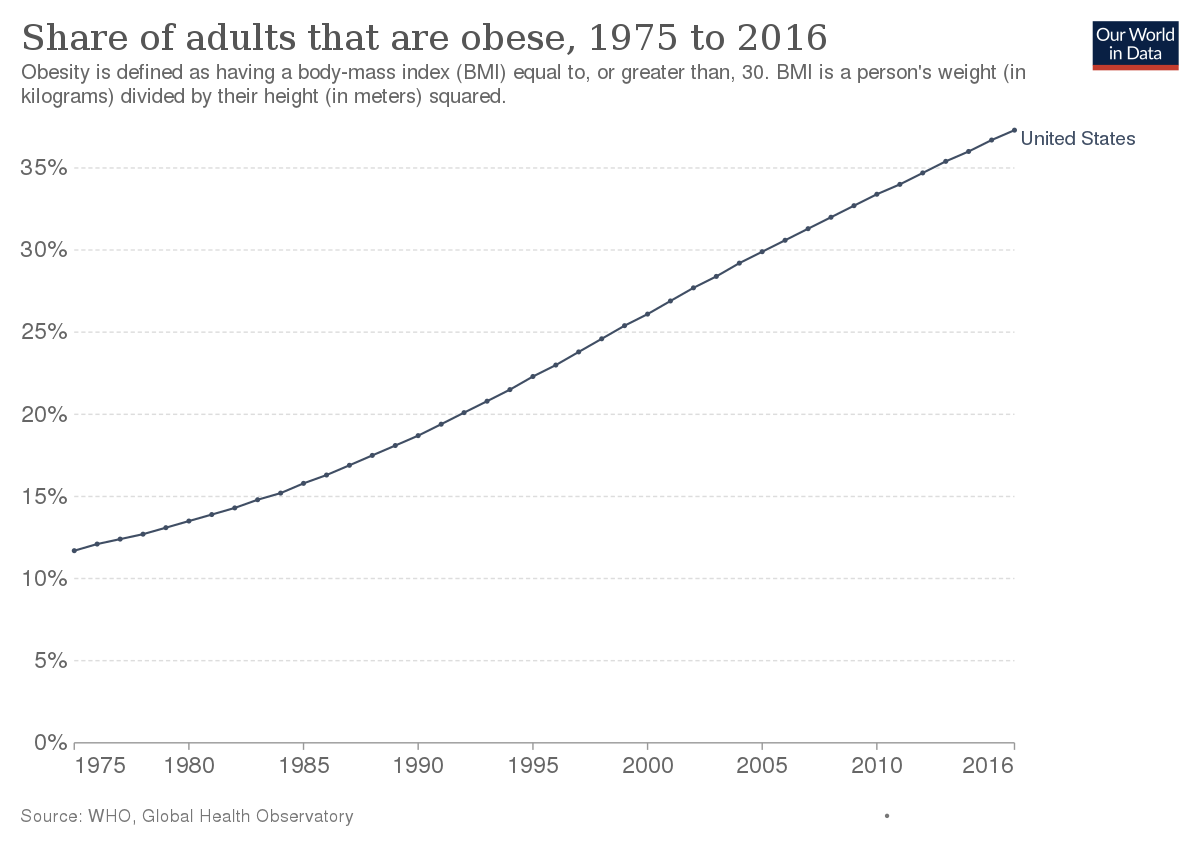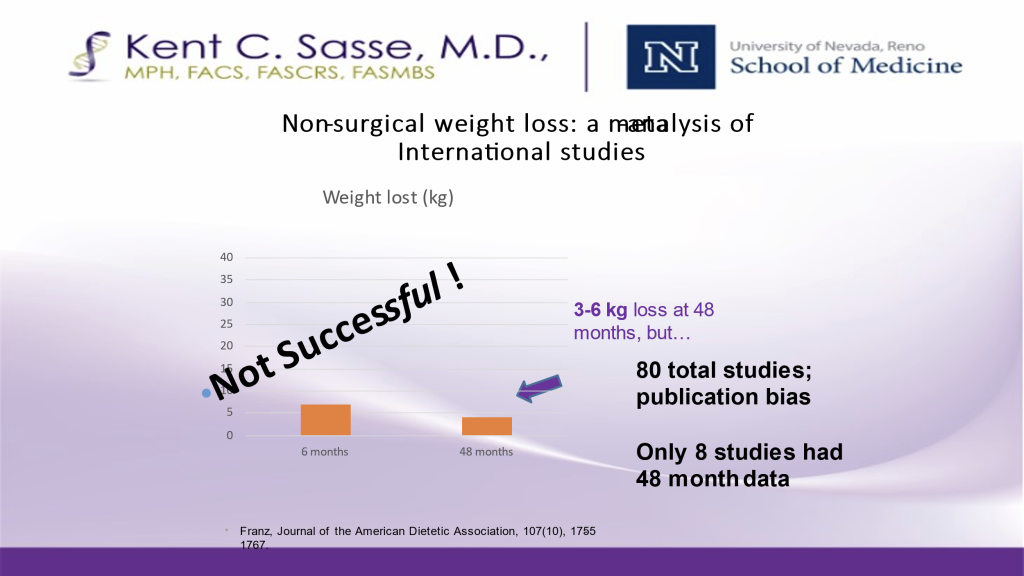With rates of obesity and type two diabetes continuing to increase, the short answer is no, diet and exercise are not enough. But it’s important to understand why diet and exercise alone aren’t enough to combat obesity.
What about Willpower?
There is a tendency to blame people with obesity for their lack of willpower to eat well or exercise. But the issue is about far more than willpower. And in fact, the best research about human effort and willpower suggests that people today are more dedicated than ever before and spending more of their personal time and effort on diet and exercise, yet achieving fewer and fewer results.
Instead of looking at individual neighbors or colleagues and judging their efforts, it helps to widen our view and look over a longer timeframe to get a true sense of what is really going on with the obesity epidemic.
The Obesity Epidemic
The truth is that widespread obesity is a very recent phenomenon. Scientific publications show the strongest links between the incidence of obesity and molecular changes in the food supply, including genomic changes in wheat, soy, rice, and all the staples, increased processed foods, the increased consumption of carbohydrates, the increased presence of antibiotics in the food supply, and the increased presence of additional pharmaceutical molecules in everything — including in the background water supply. The strong inference is that the disease of obesity is a human-caused problem not due to laziness of individuals, but by changes in the environment that affect every individual.

This is what the research makes clear. But curiously, most people, including leaders and even a lot of doctors, just do not understand the data and do not view obesity in this way. They look around and quickly begin to assign blame to the individuals who might be overeating or not getting enough exercise. But if the disease were cancer, and there was an environmental cause, most people are a lot more generous assigning blame to the environmental cause and not the individual. It is time we did the same with obesity.
Blaming the Victim
The problem with this blame-the-individual approach is that it has truly hampered the desperately-needed medical and public health response to the obesity epidemic. Instead of focusing where we should on the agricultural, pharmaceutical, and environmental causes of obesity, we instead focus on a bunch of nonsense like fad diet programs.
The truth is that in the published, peer-reviewed literature, diet and exercise programs are not successful. Even the most intensive program of committed dietary change and intensive exercise over an extended period of time with all the elements of professional advice, trainers, support groups, and accountability, produce only transient weight loss. As the National Institute of Health published, all the contestants on “The Biggest Loser” television show regain their weight within two years, with the exception of the single contestant who had metabolic surgery. Again, this is not at all because of laziness or some character flaw — in fact, quite the opposite. These are some of the most dedicated, hard-working people, but there is a biological metabolic setpoint and insurmountable biochemical processes causing weight regain and a return to the setpoint weight.
This meta-analysis shows the dismal results of medically supervised diet and exercise programs:

In this environment, with these biochemical triggers of obesity and diabetes present since the 1970s, diet and exercise are not sufficient to combat obesity. If you or a loved one are suffering with obesity, then of course you want to do everything in your power, including cutting those carbohydrates, getting that regular zone two daily exercise, steer toward healthy vegetables and protein and less processed foods, but in nearly all cases when the BMI is over 35, it’s not enough. To live the full life you deserve, and to treat the problem, it takes surgically changing the tissues to switch to a more favorable hormonal environment favoring lower body weight and blood sugar. The prescription medications may be worth trying as well, but if these are not successful, the safest way to reduce health risk and live longer is metabolic surgery.
The Bottom Line
In the big picture, we need that societal effort to investigate and confront the environmental causes of the obesity epidemic. Once we identify the biochemical causes and eliminate them, then we will not need the fancy medications or surgery.




